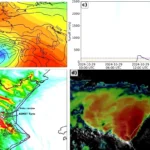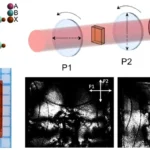Key Points
- Immune cells induce deep sleep by signaling the brain’s sleep centers and promote sleep after a heart attack to reduce inflammation and aid recovery.
- Slow-wave sleep, essential for recovery, is boosted after heart attacks due to immune response.
- Poor sleep post-heart attack in humans correlates with a higher risk of future cardiovascular issues.
- The bidirectional link between sleep and immune health supports long-held beliefs about sleep’s role in recovery.
A recent study shows that deep sleep is vital to recovery following a heart attack. Researchers observed that immune cells actively promote sleep in individuals who’ve experienced a heart attack, helping to lower inflammation and aid healing. The study published in Nature revealed a remarkable connection between immune response, sleep, and heart health. It examined mice and human subjects, emphasizing the importance of adequate rest for those recovering from cardiovascular events.
According to Cameron McAlpine, a researcher at the Icahn School of Medicine at Mount Sinai, getting quality sleep after a heart attack is essential for long-term heart health. McAlpine’s team found that immune cells known as monocytes flood the brain following a heart attack, releasing a significant amount of tumor necrosis factor (TNF), a protein that regulates inflammation and promotes sleep. This response boosts the amount of slow-wave sleep, a deep sleep phase associated with healing.
The study’s findings extend beyond cardiovascular recovery. Rachel Rowe, a sleep and inflammation researcher at the University of Colorado Boulder, suggests that sleep aids recovery from various injuries, as it is a natural response the body initiates to focus on healing. Rowe adds that the study highlights a bidirectional relationship between sleep and the immune system, meaning that insufficient sleep can compromise the immune system’s effectiveness.
To further understand how heart attacks affect sleep, the researchers induced heart attacks in mice and monitored brainwave activity. The results indicated increased slow-wave sleep, which was not observed in mice without heart attacks. By blocking monocytes from reaching the brain, the researchers confirmed that the presence of these immune cells is linked to this sleep boost. Without these monocytes, the mice did not experience the same increase in slow-wave sleep, reinforcing the role of TNF and monocytes in promoting post-heart-attack sleep.
In a related human study, individuals who reported poor sleep following a heart attack or other acute coronary events were found to have a higher risk of subsequent cardiovascular problems over the following two years. This discovery highlights the potential for sleep-focused patient care, especially after serious heart incidents.
Rowe recommends that healthcare providers educate patients about the importance of sleep post-heart attack, ensuring hospital environments prioritize uninterrupted rest. These findings reinforce that sleep plays an active role in healing and immune function and remind us of the adage that good sleep is critical to overall health.





